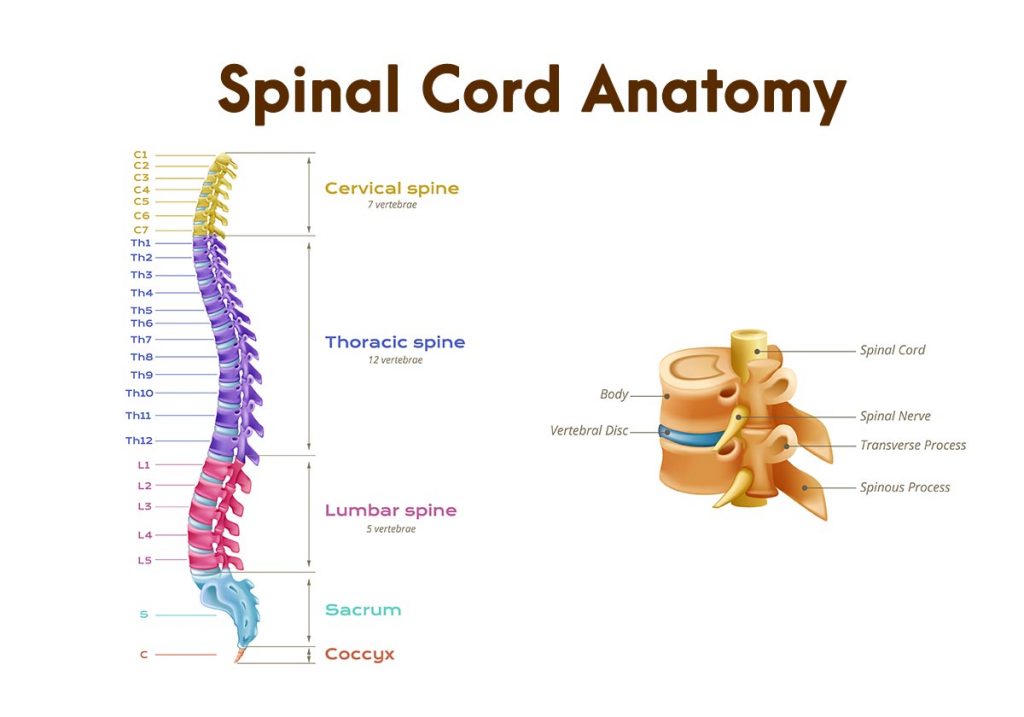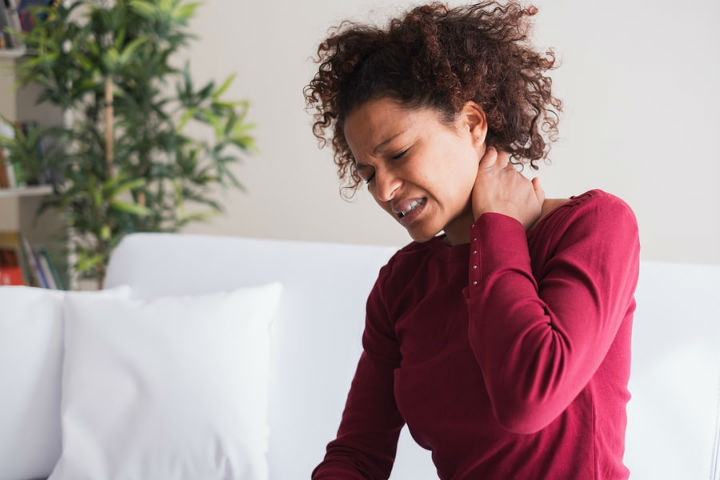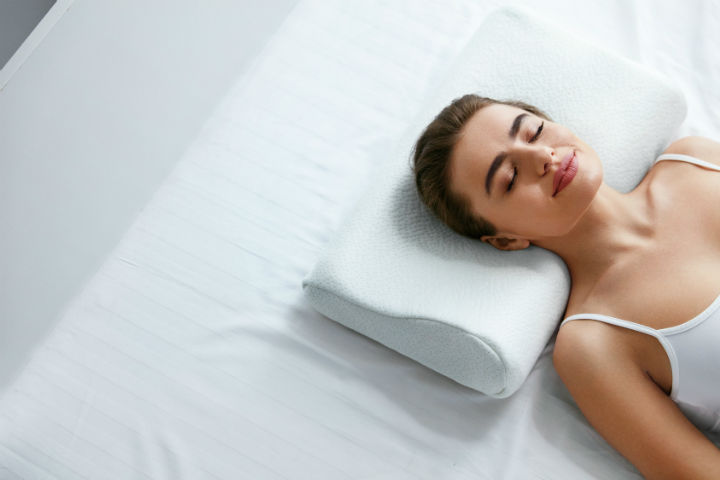A stiff neck is usually not a serious medical condition, but it can interfere with your lifestyle in many ways. It is a physical condition that can make it painful to sit, work, enjoy recreational activities, perform daily activities and get a good night’s sleep. Making some changes to posture and avoiding behaviors that strain the neck are often enough to prevent a stiff neck.
Anatomy of the Neck
The neck is where the spinal column and spinal cord start. The neck contains seven of the 24 bones in the spinal column. Connecting the head to the body, the neck is considered the area from the lower jaw to the bones in the shoulders and upper chest.
The neck has a variety of other features besides bones. They include tendons, ligaments, muscles, nerves, blood vessels and lymphatics. Also found in the neck are the pharynx, the larynx, the parathyroid glands and the thyroid gland.
Though many medical conditions can develop in the neck, one of the most common complaints is the stiff neck. A stiff neck usually indicates a muscle strain or a sprain in the ligaments or tendons.

What Causes a Stiff Neck?
A stiff neck may not have a serious underlying cause, but it can still be painful and debilitating. Some of the common causes related to daily activities include:
- Sleeping in an awkward position.
- Sitting for a long period of time in a slouching position at work while looking down.
- Standing with poor posture.
- Regularly looking down at a cell phone or computer screen.
- Reading for long periods of time with the neck bent.
- Sitting in a low seat while driving with the seat pushed back.
- Carrying heavy items on one shoulder.
- Stress that causes muscles to tighten.
- Too strenuous exercising or other activity.
- Vigorously and repeatedly turning the head sideways, like during swimming.

Underlying medical conditions that can cause a stiff neck include:
- Muscle sprain or strain
- Arthritis
- Infection
- Injury, i.e. whiplash, falling, etc.
- Infection
- Spine disorder
- Disease, i.e. rheumatoid arthritis, cancer, meningitis, etc.
When experiencing neck pain, bad posture is often the culprit. In some cases, a stiff neck may be a symptom of a more serious medical condition, like cervical degenerative disc disease. If a stiff neck lasts more than a few days or the pain or stiffness radiates down the arms or into the legs, it is important to see a physician for evaluation.
Symptoms of a Stiff Neck
The symptoms of the stiff neck include:
- Tight muscles or muscle spasms
- Headache
- Pain when turning the head
- Difficulty moving the head
- General soreness in the neck area

Preventing a Stiff Neck
Preventing a stiff neck may be simple if it is due to something like posture neck pain or computer neck pain. Following are some suggestions of steps to consider taking:
1. Change a sleeping position.
The best sleeping position for neck pain and headaches is one that keeps the neck in alignment with the body. Using the right pillow for neck support while sleeping is important.
The best pillow position for neck pain is one that prevents the neck from flexing or curving while sleeping. The pillow should not be too stiff or too high. Sometimes, it is necessary to use one pillow for the head and a higher pillow under the neck to keep the spine straight. Practice various positions until finding how to sleep to avoid neck pain.

2. Improve posture.
Keeping the shoulders back and in a straight line over the hips, with the ears over the shoulder, is good posture. This posture keeps the spine straight. Maintain a straight spine when sitting, standing or walking.
3. Avoid neck positions that cause strain.
Many times, simple activities like regularly looking down at a cell phone, or frequently tucking a phone between the shoulder and ear, and holding it with the side of the face, cause soft tissue strain. Adjust furniture or equipment so the eyes are always looking straight ahead. This may require raising a computer screen, lowering a chair, changing a worktable height and so on.
4. Avoid sitting for long periods without a break.
Keeping the muscles, tendons and ligaments flexible can help a person avoid developing a stiff neck. Take frequent breaks throughout the day, if sitting for long periods of time while working, traveling or at home.
5. Avoid placing a strap on the shoulder to carry heavy items.
The weight of a book bag, backpack or handbag, carried by a strap slung over the shoulder, strains the neck tissues.

6. Do neck stretches.
Some activities are prone to cause stiff necks, like frequent turning of the head while swimming, looking over the shoulder often during work and lifting heavy weights at the gym that strain neck muscles. The best way to prevent a stiff neck depends on the activity, but doing neck stretches after activities that involve using the neck may help prevent a stiff neck from developing.
7. Change reading position habits.
Neck pain from reading is common, whether reading a book, cell phone, eBook, tablet computer or computer screen. People read while sitting or lying down, and neck stiffness develops because a straight spine is not maintained. Remember to read the book or screen while maintaining a straight spine from neck to lower back.
When lying down to read while on your back, position pillows in a staggered formation to keep the spine straight while elevating the upper body. Be sure to use a pillow with a small lift to support the lower back, so it does not curve downward. Use a pillow in the lap to prop up the book.
If lying on your side to read, use a pillow to prop up the head and another pillow to prop the book or eBook reader for easier reading.
8. Manage stress and anxiety.
Stress and anxiety cause the body to tense, leading to tight neck muscles or a stiff neck. This is the body saying it is time to better manage stress to reduce its harmful impacts.
Keeping a Neck Healthy
Prevent the lifestyle-limiting impacts of a stiff neck by taking simple steps to maintain spinal alignment and keep neck muscles, tendons and ligaments flexible. A healthy neck is important because of the critical role it plays in so many movements and activities. Keeping the neck strong and healthy can prevent painful stiff neck episodes and enable you to continue enjoying favorite activities.
